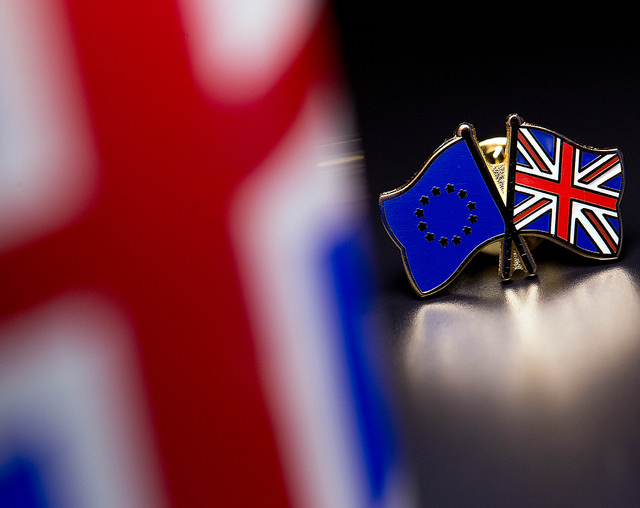Brexit – Are the stakes high enough?
Talks of Brexit are gaining momentum as David Cameron prepares for his round of negotiations with EU leaders over Britain’s demands for treaty reform, ahead of an in-out referendum on EU membership by the end of 2017. This has already raised some eyebrows, with Poland’s Secretary of State for European Affairs Rafal Trzaskowski warning Cameron not to come to the table with a “shopping list” of demands, cherry-picking the good bits and casting out the inconvenient parts. The precise extent of reforms is still unclear, as Professor of European Politics at the University of Sheffield, Simon Bulmer, points out. “He (Cameron) wants to achieve reforms but probably needs to meet all his counterparts before he decides what he can realistically achieve.”
However, Cameron could be playing a risky game. If he comes back disappointed with weak or limited reforms, he may fail to convince the British public that there are good arguments for remaining in the EU, particularly when confronted by fierce EU opposition from within his own party. One of the issues that will be central to the public debate ahead of the referendum therefore is whether people are adequately informed about what the EU actually does. What exactly would British people stand to lose by leaving?
For Professor Bulmer, Brexit could lead to a further decline in the country’s foreign policy role, especially in the eyes of the US. He argues Britain has become “a spectator in the EU, rather on the side lines”. Bulmer says this is apparent from the way the country has largely left France and Germany to deal with the crisis in Ukraine. “The clearest loss is that we would no longer be at the negotiating table of the single market’s rules. Consequently, the burden of single market legislation would still apply to the UK – as for Norway, say – but the decisions would be taken by the EU without the UK,” he said. Europe & Me sent Francesca Jenner to speak with six young people from across Europe, who all work or have worked in the Brussels “bubble”, to hear what in their opinion British people would stand to lose by opting out.
“The clearest loss is that we would no longer be at the negotiating table of the single market’s rules. Consequently, the burden of single market legislation would still apply to the UK – as for Norway, say – but the decisions would be taken by the EU without the UK”

Young voices from Brussels
Joanne Griffiths, 28, British, Charity worker
“For me, the EU benefits members on two levels. It improves people’s lives on a day-to-day level through smaller changes, for example funding some of the best European cinema, arts and scientific research projects, not to mention incredible educational exchange programmes like Erasmus+; but also on a larger, more political scale by uniting a set of relatively small countries to help us hold our own in an increasingly globalised world.”
Doris Pundy, 27, Austrian, News Producer for Germany’s international public broadcaster Deutsche Welle
“Being united in a European Union matters more in the world than each country on its own. If Britain were to exit, the country would be more isolated, would kind of lose its connection to the continent.”
Sylvain Guelton, 27, Belgian, EU customs and trade lawyer
“The UK would lose its influence in the law-making process; it would not have an impact on the rules decided in Brussels, but UK companies would still have to comply with them in order to sell products or provide services to EU consumers. Plus, customs duties would increase the price of products on the market. Why would a company choose to manufacture its cars in the UK, if the end product is more expensive for EU consumers? The answer is a free trade agreement. But that’s not guaranteed.”
Fiona Pitt, 25, British, European Commission office
“The strangest thing is unless there are specific agreements then we would have to apply for a visa to take holidays in Europe. It is also unclear what life will be like for the Brits who currently live in EU countries – i.e. how easy it would be to find work in the EU, and how it would be for people who have retired in other EU countries.”
Pierre Faure, 25, French, trainee lawyer
“The City of London is the most powerful financial hub in Europe. The US leans on the UK to spread their economic influence in Europe. If there was a Brexit, the new place to be for financial services would certainly be Frankfurt in Germany, which is looking forward to taking the position of London. Financial services are one of the most important sectors in the UK. Losing it would mean fewer job opportunities and it would weaken the economy.”
Victoria Henderson, 25, British, European Commission officer
“The clothes we wear, the cars we drive, the food we eat, the medicines we use – are all checked at an EU level for safety and quality. Issues such as our use of the healthcare systems in any EU country if we take ill while abroad would also be called into question along with many other rights and freedoms we have being European citizens.”
Cover photo: Number 10 (Flickr); Credit: CC BY-NC-ND 2.0







